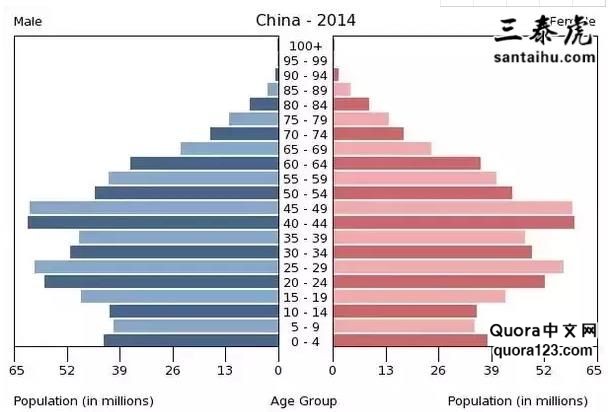中国面临哪五大挑战?Quora网友:软实力不足
What are the top five challenges currently facing China?
中国面临哪五大挑战?
Quora Question Details Bot
Aug 8
I personally think that their primary challenges are mainly environmental, overdependence on exports, corruption and demographic issues due to the one child policy. Do you agree/disagree with me? I’m interested to hear others thoughts
我个人认为中国面临的主要挑战是环境污染、过度依赖进口、腐败和独生子女政策造成的人口问题。你们赞同我吗?我想听听别人的看法。
【美版知乎quora讨论】
Kevin D. Aslan, Entrepreneur, Author, Podcaster
Updated Jun 26, 2017
Total lack of soft power.
I know what you’re thinking – there are bigger problems out there. Greg Blandino , Patrick Liew and Wenbin Wu did a great job covering them, and I invite you to check out their answers as well. From an ageing population, a disappearance of low-end manufacturing to the lack of social welfare and environmental concerns – China does indeed face many challenges.缺乏软实力。
从人口老龄化、低端制造业的流失,到社会福利的缺乏,环境污染的担忧等。中国的确要面临诸多挑战。
But these are challenges that all major economies are faced with, to varying degrees – the social net, for example, is still weak in the US. It’s strong in France, but we can’t finance it anymore.
The one thing that distinguishes China on the podium of the world’s largest economies, and its biggest problem, is the complete weakness of its soft power.这些挑战在不同程度上都是经济面临的主要挑战。
和世界其他大的经济体的区别在于,中国缺乏软实力。
But what about this movie? … yeah, that’s mostly Taiwanese.
这部电影?几乎是台湾演员。
I invite readers of this question to think long and hard about this one. When was the last time you watched a Chinese TV show? A movie? Bought a consumer brand for the brand itself, not because it was cheap? Read a book by a Chinese author?
Now compare that with the other countries on the podium – the US, the UK, Germany, France, Japan, India. Russia is a thornier issue – it has immense soft power, but it tends to be more localized to ex-Communist countries. Still, soft power.读者不妨思考这个问题,你最后一次看中国电视节目是什么时候?最后一次看中国电影又是什么时候?冲着口碑去的,不是冲着便宜?读过一本中国人写的书吗?
现在对比世界其他大国:美国、英国、德国、法国、日本、印度。俄罗斯是个棘手问题——俄罗斯具备强大的软实力,这个软实力主要局限于前共产主义国家。
China has an incredibly difficult time in exporting an admiration of its culture to the world. It tried, in part, with the horribly clumsy Confucius Institutes – but the failure of those just goes to show how hard it is. Soft power is not forced down someone’s throat – it needs to be voluntarily accepted.
The truth is, China has had a few hits. A Bite of China did an incredible job in showcasing Chinese regional food – and was an immediate success.在向世界输出文化的过程中,中国经历了艰难的时期。某种程度上,中国以孔子学院作为尝试,但失败了,恰恰说明这有多难。软实力不是强迫某人接受的——需要外面自愿接受。
事实上,中国曾有几次成功了。《舌尖上的中国》介绍了中国的地方美食,令人叹为观止,立马获得了成功。

Wechat could have been an immensely popular tool in Asia. I’m a giant fan, and maintain that it is so advanced compared to Western alternatives that Facebook’s playbook with Messenger is essentially: ‘Copy Wechat’. But then because of the inclusion of a map that showed that China laid claim to all of the China sea (the infamous 9-dotted line), users in Thailand and other countries began to shun it. Politics stepped in, and it destroyed the little soft power they had managed to create.
微信本可以在亚洲流行的,我很喜欢,不输西方同类产品。Facebook Messenger的策略本质是“抄袭微信”。由于微信包含了一张地图,显示中国的(九段线边界),所以泰国和其他国家的用户开始回避。政治的因素,葬送了业已创造的一点软实力
Brands like Xiaomi are making great inroads as well, around the concept of affordable, but still high-quality and innovative smart products. But if China had more soft power to begin with, I can guarantee you Xiaomi would already be a household name. After all, if your favorite TV stars are all wearing a Xiaomi band, wouldn’t you be curious?
小米等中国品牌也在进军海外,物美价廉。如果一开始中国就有强大的软实力,小米这一名字现在已经家喻户晓了吧。毕竟,如果你最喜欢的电视明星都选择小米品牌,难道你会敬而远之?
There’s a reason for this, and it’s historical. It’s even in China’s name: 中国 – literally “Country in the Middle”. China has always been China-centric, and ever since doing away with Zheng He the explorer, striving for self-sufficiency.
So the biggest challenge ahead for China?
Learning how to make the world love Chinese culture. Chinese brands. Chinese history. The rest will follow.这是有原因的,而且是历史性的。甚至在“中国”这个名字里,中国字面意思是“中央国家”。中国一直是以中国为中心的,从那时起,他就一直在努力追求自给自足。
那么,中国面临的最大挑战是什么?
中国最大的挑战是,如何让世界热爱中华文化,如何让世界喜欢中国品牌,如何让世界了解中国历史。其他问题将迎刃而解。
Greg Blandino, works at Beijing, China
Answered Jun 3, 2017
In no particular order:
1、Real Estate Bubble/Prices and resulting unaffordability of purchasing housing for the plebs.
2、Shrinking economic opportunities for the post-80s, post-90s, and coming post-00s generation.
3、When that thick part of the graph moves up to retirement age and has to be supported by the thin part at the bottom, so health-care, old-age pension, etc.排名不分先后:
1、房地产泡沫大,民众买不起房
2、等着80后、90后,以及00后一代人的是萎缩的经济,机遇少了
3、人口老龄化,医疗保险、老年退休金等是一个沉重负担。
4. Environmental damage, specifically depletion and contamination of the water table in the North. Hopefully that South to North water transfer thing works out.
5. Bourgeoisization and materialistic nihilism in the urban centers, and what that means politically and socially.
Not really a Chinese challenge, but a bonus regional one: Deindustrialization and unemployment/underemployment in the Northeast. You can see problems 1, 2, and 3 play off of each other.4、环境破坏。特别是北方地区的地下水干涸和污染,希望南水北调工程能起作用。
5、城市中心资产阶级化和虚无主义
不算真正的中国挑战,属于区域性问题:东北的去工业化、失业问题或者说就业不足。

